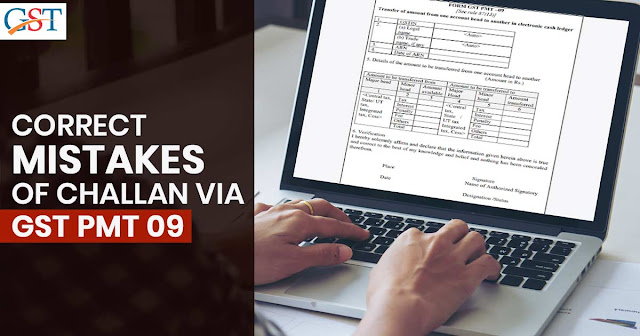Taxpayers often make mistakes while filing GST challan, one of the most common ones is “making payment under the wrong head”. At Present time when countrywide lockdown has been imposed and the end of it is not appearing clear, taxpayers are already going through a liquidity crunch, and on top of that these common mistakes are worsening the condition because their payment gets blocked, What are the steps government has taken to rectify and solve these mistakes?
Who can Fill the GST PMT-09 Form?
Each and every taxpayer who wants to correct their wrongly paid tax can fill the GST PMT-09 Form. Authorities made it available on the GST portal from April 21, 2020.
However, there is just one thing that seeks your attention is that if tax is utilized falsely in form GSTR 3B, then this is not of any use. The form GST PMT-09 can be only used for relocating the amount of tax lying in cash ledger which is not utilized.
Points that Need to be taken care of About GST PMT-09 Form?
Yes there are some really important points that need to be taken care of by the taxpayers and here they are:
- Form PMT-09 is not of any use if the taxpayer utilized the wrongly paid challan in form GST Return 3B
- Correction and modification in GSTR-3B are prohibited. Shifting of the wrongly paid amount in cash ledger can be performed using the GST PMT-09 form
- A taxpayer can only rectify a challan, before utilizing it
- Even if ratification has been done after the due date, interest does not need to be paid because inter head adjustment of tax does not lead to any revenue loss
What are the Instructions to File GST PMT-09?
some important instruction which needs to be followed are:
- The major head indicates Integrated tax, State/UT tax, Central tax, and Cess
- Minor head indicates penalty, tax, interest, fee, and other heads
- GST PMT-09 form can be filled in case any amount from one major or minor head is expected to be shifted to another major or minor head. Minor heads to transfer the amount may be the same or even different
- The Amount can be transferred from one minor head to another minor head under the same major head
What are the steps to File GST PMT-09?
the Steps to file PMT-09 is engraved below:
First of all, visit www.gst.gov.in and log in using your credentials
Navigate to Services > Ledgers > and then Electronic Cash Ledger
Find and click on "File GST PMT-09" to transfer the required amount.
Do all the required corrections or rectifications.
Check all data once and if everything seems fine then click on “Save”.
After that Click on "View Filed GST PMT-09" to preview the modified GST PMT-09.
What should the taxpayer learn from this?
The first thing that a taxpayer will note is that the GST PMT-09 Form can be only utilized for shifting or transferring the amount of tax laying in cash ledger. This form can’t help if ITC has been utilized or misallocated. The next thing is that the GST-3B is not editable so PMT-09 can’t be utilized, so file forms carefully.


Comments
Post a Comment